|
Blame Canada!: The wisdom of South Park is relevant once again, this time as I resurrected the "Blame Canada" scene while listening to an episode of the Indicator podcast from Planet Money. The episode in particular was from May 23 and was titled "Canada's Tariff Hangover". The episode was about the ending of the trade war and tariffs imposed by the US on Canada and vice versa, and in particular about a small business in Ottawa that was particularly impacted by the tariffs imposed on Magic: The Gathering cards coming in from the US. Near the end of the episode, the hosts drawing the conclusion that the small business owner should be upset with the Canadian government for imposing the retaliatory tariffs. To quote from the transcript: ... the Canadian government is what ended up causing Dave all this harm, if you think about it, because it was Canada's retaliation that imposed those tariffs on Magic cards in the first place. So it kind of shows you that when a country's government retaliates, it can end up really hurting some of its own people." Trade wars are damaging to both sides. That's why they are called trade wars, and not trade parties, or trade fun-things. And yes, there were damages to Canadian business by the increased tariffs. However, to call out the Canadian government for the particular damage to this one store conveniently omits the fact that the Canadian tariffs were retaliations, meaning of course that they were in response to the opening tariff salvo imposed on Canada by the US. Blame Canada, indeed. BYDTWD, or How Much Meta is Too Much Meta?: In our weekly D&D lunch hour session this week, our PCs encountered some weird elf-spider hybrid who was clearly thousands of years old. In talking to the DM after the session, his inspiration for a lot of this setting is a riff on the drow spider queen, Lolth. However, it isn't the same Lolth that we would see in the Drizzt books or in other canon material in books, game supplements or in computer RPGs. This is something that is hard for me to wrap my head around. How much should I read about Forgotten Realms if the DM is not going to adhere to what I have read? Sure there is a Nashkel, but it isn't exactly the same as the Nashkel I know from Baldur's Gate. Does the information I know from the game help or hinder me as a player? Am I going to make a bad decision because Quinemin the PC knows a different world from Robert the player? Understanding the world the PC is in is important so that role playing is better, and so that better decisions are made. I just don't know if I am actually going to make better decisions because my context is inconsistent with the actual environment. Or maybe the DM doesn't have the world completely figured out and therefore my knowledge will help guide the game in a good way. Or maybe I should just stop thinking so hard and just play the game.
New Words:
pom·ace [ˈpəməs] NOUN
ten·den·tious [tenˈdenSHəs] ADJECTIVE
ex·u·date [ˈeksədāt, ˈeksyo͞oˌdāt] NOUN
sin·ter [ˈsin(t)ər] NOUN
li·bra·tion [līˈbrāSHən] NOUN astronomy
la·cu·na [ləˈk(y)o͞onə] NOUN
con·viv·i·al·i·ty [kənˌvivēˈalədē] NOUN
0 Comments
More on Capitalism: It seems most everything I read lately has to do with the failures of capitalism and what might and should replace it. When I mentioned that to my friend Mark, he sent me a link to a Boing Boing article quoting Joe Stiglitz calling neoliberalism a "failed ideology". This analysis is similar to my recent readings from Lapham, Fleming, and the 60 Minutes episode, as well as the Paul Collier book I am currently reading (more on that next week). Select the "Capitalism" category to find those articles. Stiglitz has an impressive number of books in his bibliography, if his message resonates. Speaking of Wealth: At a casual dinner this week for a retiring co-worker, he commented that the luxury of time to explore new ideas on one's own time frame is true wealth. Sage words.
The U.S. Has a Fleet of 300 Electric Buses. China Has 421,000: Is there much else to be said after a stat like that? Well maybe that the rest of the world combined has a total of 4,000 electric buses, so less than 1% of China. Crazy. The stats are from a May article in Bloomberg that I just read this week. On a local scale, ETS is in the process of purchasing up to 50 electric buses, which makes transit in Edmonton a player on the world stage if you exclude China. Reading pile: My consumption of books continues, with two more finished this week, and one I forgot to mention last week. First up on the list is "Red Queen" by Victoria Ayeyard, a fairly involved young adult-fantasy-adults are evil-only I can save the world novel. I started reading it to the younger daughter, but she lost interest, so after a number of weeks, I picked it up again and finished it off. Completely enjoyable, somewhat novel in concept, and good enough to read the next one in the series (because don't all of these type of books come in a series?). Second is Michio Kaku's "The Future of Humanity". Kaku is clearly intelligent and is able to convey complex ideas fairly simply. I guess I was hoping for more from this book given his pedigree. This book was interesting in parts, and it did present some suggestions on how humans could move from Earth to Mars and beyond, but there was little in the way of enthralling narrative or vision. The best part of this book was Kaku's description of a T. Rex as a walking mouth. Third is "Drive: Volume 2" by Dave Kellett. I love Kellet's work, and especially with Drive which allows his to tell a complex and interesting story and intersperse it with his oddball humor. I picked up Volume 1 and 2 via two of his Kickstarters, and am looking forward to Volume 3. The entire Drive comic can be read online on Kellet's site.
New words:
Surprisingly few new words this week, even though I read a ton. pil·lion [ˈpilyən] NOUN
towheaded [ˈtōˌhedəd] ADJECTIVE
twee [twē] ADJECTIVE BRITISH
 Accomplishments?: FWIW, I did all of the daily challenges in both Wordament and Solitaire this month. Tell my parents that when they tell you that I never amounted to anything. BYDTWD: In our weekly lunch hour session, I was back to playing as my stint as a guest DM is now over. I have to tell you that I really prefer DMing. All you have to do is show up when you are a player, so the level of engagement just isn't there for me. That was one change in perspective that I had. The other is how much weird the players seem to want. Our regular DM developed a campaign in a low magic world, but people seem to want to jump in with high magic, exotic characters. Our newest player came in with a Tiefling Bard. Wait, what? Yeah, exactly. I watched the first forty or so episodes of the second campaign of Critical Role, and now that I look back at those episodes, I notice the same. A goblin, a tiefling, a half-orc (admittedly pretty low magic), an Aasimar, a furlbog played a person who previously played a Tiefling, and two humans. Every single one of the players behind those characters are great actors, but for my money, the best character in the lot is one of the humans. (You can argue about which one in the comments.) When Matt Colville was ramping up for The Chain of Acheron, he told his players that the preponderance of the characters needed to be humans, even though the campaign is very high magic. Even so, within the first few episodes, one character gets turned into a pink mist and the player wants to play a githyanki. So much for the players adhering to the guide posts. What does this mean for the DM? I'm not sure to be honest. Maybe the lure of the unknown and the magical is too strong, and the DM just needs to build that into the campaign. Maybe it is reasonable to expect players to want to stray from the mundane in a fictional setting. Playing a character that is essentially your neighbor in real life does seem less enticing than a githyanki that has never eaten a caramel sausage, for example.
 How's this for a Smash in the Mouth? How's this for a Smash in the Mouth? My world's on fire, how about yours? The wild fires in Northern Alberta are terrifying. The thought that out of control fires in the spring are the new normal is even more terrifying. The northern half of the province needs a Noah's Ark scale deluge in the short term, and we need to figure out how we can fix the planet in the long term. I don't ever recall hearing about the Air Quality Health Index before last year, but now with all of the fires, our local schools keep kids inside for recess when the air quality is too poor. New beers: Just one new beer this week. It was the Red 8.6 from Royal Swinkels Family Brewers in the Netherlands. Red 8.6 seems like a strange name since the beer is only 7.9% ABV (only!), even though it is a red. But I digress. I'm not a big red fan, and this was okay, but it was quite a mouthful with the alcohol taste. Not great, but good enough that I will try out their other beers, like the Gold 8.6 for example. (3.0 / 5) New words:
su·per·ses·sion [ˌso͞opərˈseSH(ə)n] NOUN
pred·i·ca·tion pre-də-ˈkā-shən \ NOUN archaic a : an act of proclaiming or preaching b : sermon in·a·ni·tion [ˌinəˈniSHən] NOUN formal
mid·den [ˈmidn] NOUN
Books, books, and more books: I have been reading a lot lately, which is directly related to my mental and emotional inability to force myself to work in the evenings anymore. What was previously part of my daily routine is now just beyond comprehension. Eight to nine hours during the work day is so draining that I have nothing left to give in the evening. My evenings are now spent with a good book. Or a so-so book as I'll explain shortly. Life is better with books, even the so-so ones. 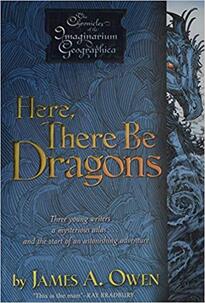 "Here, There Be Dragons" by James Owen was the first book completed this week. I read this with my older daughter, so this book was not read all in one week. This was an enjoyable story set in the later days of The Great War (WWI) that weaves together many of the literary myths of Western culture. The central artifact that binds the myths is a book called the Imaginarium Geographica which has been handed down through the centuries from some of the greatest figures in Western history. Losing the book means losing the world, and our trio of heroes do exactly that. There have been other books that taught me history while I have read them, such as The Baroque Cycle, but this was probably the first one that was consumable by a teen / Young Adult audience. Definitely worth a read, and definitely worth reading the second in the series. The next book completed this week was Petroski's "The Evolution of Useful Things" that I quoted from last week. This was a disappointment overall, and I'm not sure I would recommend it. The history of the paper clip and the stapler were interesting, and the first discussions on the US patent system were interesting, but repeated quotes from patent applications throughout the 20th century did little but bore me. However, there were two more quotes that are worth sharing. The first is an informal definition of engineering: … it is rather the art of not constructing: or, to define it rudely, but not inaptly, it is the art of doing well with one dollar, which any bungler can do with two after a fashion." The second quote from Petroski comes from the final pages, and is a good summary of one of the book's key points, namely, that perfection is a myth, and any assumption of perfection is completely subjective and strictly time limited. The real or perceived failings of product or process in the mind of a particular inventor are the genesis of the next idea or evolution of the current idea. What constitutes failure and what improvement is not totally objective, for in the final analysis a considerable list of criteria, ranging from the functional to the aesthetic, from the economic to the moral, can come into play." 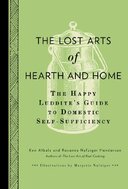 Moving on, the next book was "The Lost Arts of Hearth and Home" by Ken Albala and Rosanna Nafziger Henderson. This book was full of interesting tidbits and things to try, from a two sentence description of how to make homemade gnocchi, to a detailed description of sewing various articles of clothing. Plus, I learned that vinegar is really just sour wine, which in French is vin aigre. Mind. Blown. 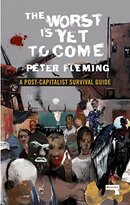 Finally, I read "The Worst is Yet to Come: A Post-Capitalist Survival Guide" by Peter Fleming. This was a quick read, clocking in at a bit over 100 pages, with fairly small pages at that. Fleming has nothing good to say about neoliberalism, but his "Survival Tips" at the end of each section are more summations than actual action steps. For example, saying that Donald Trump eating hamburgers naked in bed might be the antithesis of the path forward, but he does not provide any way of getting beyond that image. If Fleming is to be believed, the next generation is in for a historically oppressive shitshow, meaning that any preparation coming out of this book would be for the long game. Happy Birthday. Your gift is a messed up world heading for oblivion: The house was filled with pre-teens one afternoon this week in celebration of our older daughter's birthday. The collection of strong, confident, and intelligent young people coincided with me reading Fleming's dire predictions for the future. I could have, maybe even should have, been depressed for their future, and wallowed in my guilt over the waste of potential and promise. But one of the themes in Fleming's book stuck was the need to prepare, to find alternatives while we still can, and that stuck in my head as I watched the next generation laugh and interact. All of a sudden my job, my role, my reason for being became obvious. I need to do everything I can to hold on to the world and the values that we hold true so that we can hand them as much of a contiguous whole as we can. We have to hand them our values, our mistakes and learning, our histories, and our dreams for the future, along with the tools and supports they need so they can unfuck the world when they are ready. My generation isn't capable of unfucking anything, but maybe we can help our children's generation become the saviors we need. Bring Your Dice To Work Day (BYDTWD): My last day of guest DM'ing for our weekly at work lunch hour D&D session was this week. Matt Colville talks about how D&D is the perfect hobby because no matter what your creative impulse is, you can express it in the game. Writing. Crafting. Drawing. Hell, probably even knitting for that matter. For me, it is the writing and the acting. My thoughts now move on to curating my own group. Age, gender, background are all irrelevant for the group, but mindset is essential. More RP than min-max. Combat is only a part of the game. Ability to commit to email sessions, and long sessions preferably in person. Consistent play times. Supportive of others. Interested in the story more than the loot. But how do I find these people? Advertise on Kijiji? This is something that will need more thinking. Idiot? Me?! I suppose I brought it on myself to an extent. I don't change into crappy jeans and a t-shirt if I have to go to a place like the Lawnmower Hospital. I understand that I don't fit it there, but I needed a mulching blade for our mower and they don't sell those at the bookstores, comic shops, Henry Singer, Eddie Bauer, or anywhere else I typically shop. So excuse me all to hell for buying such a lightweight blade, which really should be excuse me all to hell for buying an electric mower in the first place. But really, did that guy need to mutter "Idiot" to me as I walked by? I can handle the comment, as I can ignore small-minded people. My concern is whether or not the comment was directed at me because he felt empowered to do so with the current political climate. If a white, middle-aged male can get trash talked, imagine the abuse an immigrant, a women, a person of color, a gay person, will have to endure as we hurtle into the abyss. Throwaway Text: She was friendly, fun to be with, energetic. Pretty, if I was being honest. I liked her and whenever our shifts matched up, I contrived to leave the fulfillment center with her. We would walk to the bus stop and wait in the dusk for our buses. 46 for her, and then the 95 ten minutes later for me. Sometimes we would skip the first buses that came by just so we could talk longer. After, I would sit on the bus and think about her all the way home. On the days I got to spend those precious few minutes with her, I wouldn't even notice the grime in my flat or smell the piss-filled alley it emptied onto. The world was just better on those days. That all changed the day she became a liability. It was clear that it was her third strike, but I never knew what exactly it was. Maybe too long in the bathroom. Maybe she broke something. Maybe they just didn't like how she hummed while she compiled the boxes of useless shit that the customers ordered. Whatever it was, she hit her third strike, and there was nothing we could do but watch. Third strikers were a liability to everyone around them, and I couldn't afford to have her take me down as well. They always made us watch when a third striker was escorted out. The hysteria, the crying, the near epileptic fits of panic. We saw it all. We knew what it meant. When the only job you could find was in a fulfillment center, losing that job probably meant you were going to be homeless. Or dead. Or worse. I looked into her eyes as she was pushed past the gathered crowd. Past me. Out the door. When she looked at me, I saw the pain and fear, but I also saw an understanding. She didn't blame me for not reaching out or helping her. She knew there was no point in me condemning myself as well. I had never felt so hollow, so pathetic. That night after work, I watched the 46 come and go. The 95 came and took me home. I noticed the grime and smell much more clearly that night. New beers: Five new beers this week, after none last week. First was Screaming Viking Lager from Odin Brewing in Tukwila, Washington. I liked it a lot, which says a lot since it is a lager. (3.5 / 5) Second was Odin's Gift Red, another offering from Odin. Good stuff again in a style I don't typically like. I'll have to search out more from Odin. (3.5 / 5) Third was the Millionaire Stout from Wild Beer Co. in Somerset, England. Really nice stuff, with the dense brown foam that I am fond of in this style. (3.75 / 5). Fourth was Fish Bone New England IPA from Alley Kay, a surprisingly high IBU beer without a huge amount of hops. (3.75 / 5). Finally, the Oldman Watershed Collective benefit brew from Phillips. That was a surprising kolsch variant with a lot of haziness. (3.75 / 5). All in all, a good week for new beers. New words:
Lots of new words this week, but that is to be expected when reading a book by a UK professor and another by Neal Stephenson. nixtamalization n ɪ ʃ t ə m əl aɪ ˈ z eɪ ʃ ən a process for the preparation of maize (corn), or other grain, in which the corn is soaked and cooked in an alkaline solution, usually limewater (but sometimes wood ash lye), washed, and then hulled. pu·ru·lent [ˈpyo͝or(y)ələnt] ADJECTIVE
a·poth·e·o·sis [əˌpäTHēˈōsəs] NOUN
prof·li·gate [ˈpräfləɡət] ADJECTIVE
mon·ad [ˈmōˌnad] NOUN
e·qui·poise [ˈekwəˌpoiz] NOUN
in·ter a·li·a [ˌintər ˈālēə, ˌintər ˈälēə] ADVERB
jer·e·mi·ad [ˌjerəˈmīəd] NOUN
sat·ur·nine [ˈsadərˌnīn] ADJECTIVE
di·a·lec·tic [ˌdīəˈlektik] NOUN
in·vid·i·ous [inˈvidēəs] ADJECTIVE
or·rer·y [ˈôrərē] NOUN
di·er·e·sis [dīˈerəsəs] NOUN
in·ef·fa·ble [inˈefəb(ə)l] ADJECTIVE
tau·tol·o·gy [tôˈtäləjē] NOUN
con·com·i·tant [kənˈkämədənt] ADJECTIVE
in·vet·er·ate [inˈvedərət] ADJECTIVE
per·ni·cious [pərˈniSHəs] ADJECTIVE
bod·kin NOUN
pri·va·tion NOUN
man·sard [ˈmanˌsärd] NOUN
with·ers [ˈwiT͟Hərz] NOUN
om·ni·um gath·er·um [ˌämnēəm ˈɡaT͟Hərəm] NOUN
pro·lix ADJECTIVE
Starting off this week's entry with two great quotes: "I can resist anything but temptation." Everything in moderation, including moderation." Useful guidelines for self-improvement goals: By now, I assume that everyone who has been in a white-collar job for over five years will know about SMART Goals. SMART goals would be helpful in any self-improvement exercise, but even more useful are the following five guidelines I came across in a web course this week. The guidelines come out of the Immunity To Change method developed by Robert Kegan and Lisa Lahey (1, 2).
 Why nothing can ever be perfect, and why that's okay: I'm continuing to read through my Pile of Shame in my office, and I decided to tackle "The Evolution of Useful Things" by Henry Petroski. I was hoping for more of a Bill Bryson-esque read, something like what Bryson did in "At Home", but it is still interesting. The underlying thesis in Petroski's book seems to be failure is the mother of invention, not necessity or even inspiration. Since nothing is perfect, and, indeed, since even our ideas of perfection are not static, everything is subject to change over time. There can be no such thing as a "perfected" artifact; the future perfect can only be a tense, not a thing. No, you’re not entitled to your opinion: So leads a 2012 article from the website, The Conversation. The particular article refers to an interview where a Wollongong station quoted a known antivaxxer in a story about a measles outbreak. The question the article poses is whether the antivaxxer should be given any chance to enter into the conversation if in fact her contribution to the conversation will not be based in fact. The central quote in the article is as follows: The problem with “I’m entitled to my opinion” is that, all too often, it’s used to shelter beliefs that should have been abandoned. It becomes shorthand for “I can say or think whatever I like” – and by extension, continuing to argue is somehow disrespectful. And this attitude feeds, I suggest, into the false equivalence between experts and non-experts that is an increasingly pernicious feature of our public discourse. While this seems intellectually sound when entering into a debate with someone whose idea of research and rigor is little more than Facebook, the question is how to get your point across when the other side just doesn't want to listen. This makes me think of the intro to "Civil War" by Guns N' Roses (i.e. "What we've got here is failure to communicate. Some men you just can't reach...) and a 1990 paper published in the Journal of Personality and Social Psychology called "Unskilled and unaware of it: How difficulties in recognizing one's own incompetence lead to inflated self-assessments." This is unfortunately now behind a paywall, but it is worth a read just for the lemon juice anecdote. (No spoilers here.) Bring Your Dice To Work Day: Last week I posted a map of the area I was planning on taking my players through in our weekly Wednesday D&D lunch hour game. I realized later that one of the players might read this blog and therefore get advanced intel on what lays ahead in the game. This is of course pure hubris, because that requires this blog to have actual readers in the first place. But getting past that issue, I have decided instead to copy text here post facto from the campaign diary I write up. I particularly liked this excerpt, even if it has a heavy metagaming requirement to be understood.
Movie - I Kill Giants: Spoilers suck, so I won't spill anything about the movie "I Kill Giants" other than to suggest that you watch it. And then read the graphic novel that it was based on (caveat: I haven't read it yet, but it must have been decent since it was developed into a movie).  Book - Cuckoo's Calling: Hey, this was a good read. I stayed up late a couple nights in a row to finish it off, and I'm glad I did. I do like detective novels, especially if the protagonist has solved the case before the answer is revealed in the story. There are a few more stories in the series that I'll be sure to read. New words:
Not nearly as many new words this week. Apparently the J. K. Rowling detective novel wasn't as erudite as Rosewater. vi·cis·si·tude [vəˈsisəˌt(y)o͞od] NOUN (vicissitudes)
aph·o·rism [ˈafəˌrizəm] NOUN
per·ni·cious [pərˈniSHəs] ADJECTIVE
se·nes·cence [səˈnesəns] NOUN biology
an·nu·lar [ˈanyələr] ADJECTIVE technical
entremets [en·tre·mets] NOUN, plural in form but singular or plural in construction 1. dishes served in addition to the main course of a meal 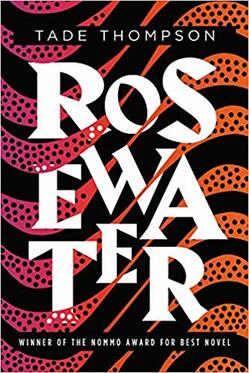 TL;DR - Lots of reading, not a lot of beer, or much else for that matter. Book - Rosewater: During one of my walk-around-while-on-a-call sessions a few weeks ago, I stopped by the downtown Coles and saw an intriguing book called "Rosewater" by Tade Thompson. I picked up a copy from EPL a few days later, and was hooked immediately. First-person, timeline shifting, science fantasy, with interesting characters. Really good stuff. I mentioned a few weeks ago that I had supported a number of Kickstarter initiatives. One of them was an Afro-centric role-playing supplement called Swordsfall, which stands out in stark contrast to the typical medieval Euro-centric campaigns. With that in my thoughts as I read Rosewater, which is set in Nigeria, I realized how little African references I have. The names, places, idioms, and references were foreign to me. This was a good reminder of the need to push oneself to gain different perspectives and opinions. Which brings me to my next point: A solid percentage of the items that show up in this blog come from Warren Ellis and his weekly newsletter. This quote came from that newsletter: I've said this to you before, and I'll say it again: always be checking your practice. Times change and so do you. 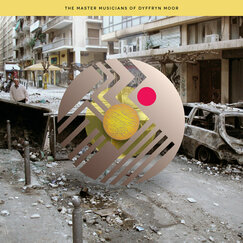 New music - Contemporary Protest Music: Again from the files of a certain Warren Ellis, the four tracks linked here come from one of Ellis's weekly newsletters. This is not background music to chill to. These four songs are made to motivate and inspire, and to push the listener to action. The long version of the track names leave no doubt as to the artist's political position. For example, "The greatest trick the Tories ever pulled was convincing working class British voters, who feel left behind, to blame the EU & immigrants for their troubles while also convincing them to continue voting for the very party actually responsible." 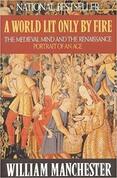 The uselessness of precedents in the face of radical change: In my endless pile of books with the "Currently Reading" status is "A World Lit Only By Fire" by William Manchester, a book I purchased in the mid 90s and am only now reading. It covers the history and shift in focus as Europe moved from medieval times to the Renaissance. Early in the book, Manchester provides a quote that perfectly captures the issues with using the past as a guide for the future in the face of enormous change: Even the wisest of them were at a hopeless disadvantage, for their only guide in sorting it all out - the only guide anyone ever has - was the past, and precedents are worse than useless when facing something entirely new. Interlude, courtesy of "Cuckoo's Calling": Wisdom from the Dojang: The fine folks at Elite Taekwondo provide this valuable advice in their most recent newsletter.
New words:
Lots of reading this week, so lots of new words as a result. (I sometimes feel so illiterate. I should have known many of these, since they weren't really "new".) ves·tig·i·al [veˈstij(ē)əl] ADJECTIVE
vi·tu·per·a·tive [vīˈt(y)o͞opəˌrādiv, vəˈt(y)o͞op(ə)rədiv] ADJECTIVE
myth·o·ma·ni·a [ˌmiTHəˈmānēə] NOUN
Bac·cha·na·li·a [ˌbakəˈnālyə] NOUN
pen·u·ry [ˈpenyərē] NOUN
plan·gent [ˈplanjənt] ADJECTIVE literary
lep·o·rine [ˈlepərīn, ˈlepərin] ADJECTIVE
des·ul·to·ry [ˈdesəlˌtôrē] ADJECTIVE
po·grom [ˈpōɡrəm, pəˈɡräm] NOUN
ca·tab·o·lism [kəˈtabəˌlizəm] NOUN biology
fet·ter [ˈfedər] NOUN
ruc·tion [ˈrəkSHən] NOUN informal
er·satz [ˈerˌzäts, ˈerˌsäts] ADJECTIVE
mor·dant [ˈmôrdnt] ADJECTIVE
fe·tor [ˈfēdər] NOUN
tu·mes·cent [t(y)o͞oˈmes(ə)nt] ADJECTIVE
guile [ɡīl] NOUN
con·ur·ba·tion [ˌkänərˈbāSH(ə)n] NOUN
shrive [SHrīv] VERB archaic
in·e·luc·ta·ble [ˌinəˈləktəb(ə)l] ADJECTIVE
u·su·ry [ˈyo͞oZH(ə)rē] NOUN
im·pu·dic·i·ty [ˌimpyəˈdisədē] NOUN formal
bant·ling [ˈbantliNG] NOUN archaic
vi·ti·ate [ˈviSHēˌāt] VERB
don·jon [ˈdänjən, ˈdənjən] NOUN
a·lac·ri·ty [əˈlakrədē] NOUN
rec·on·dite [ˈrekənˌdīt, rəˈkänˌdīt] ADJECTIVE
es·cu·lent [ˈeskyələnt] ADJECTIVE
|
Archives
April 2022
Categories
All
|

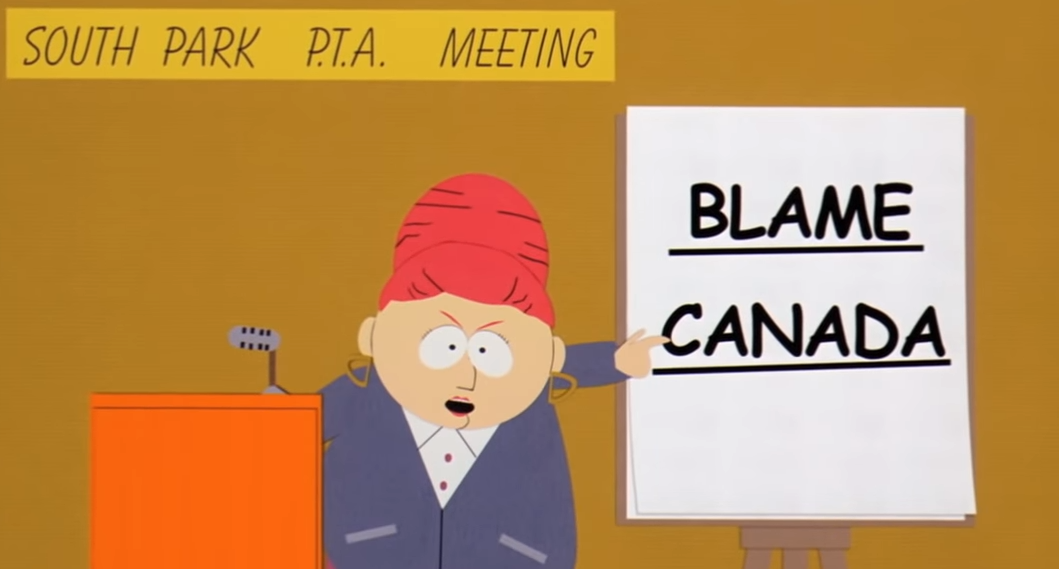
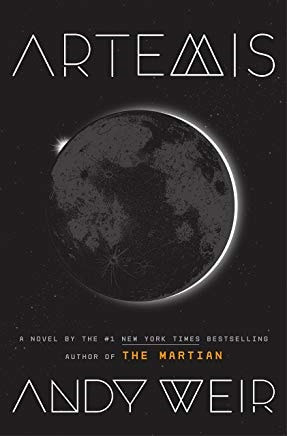


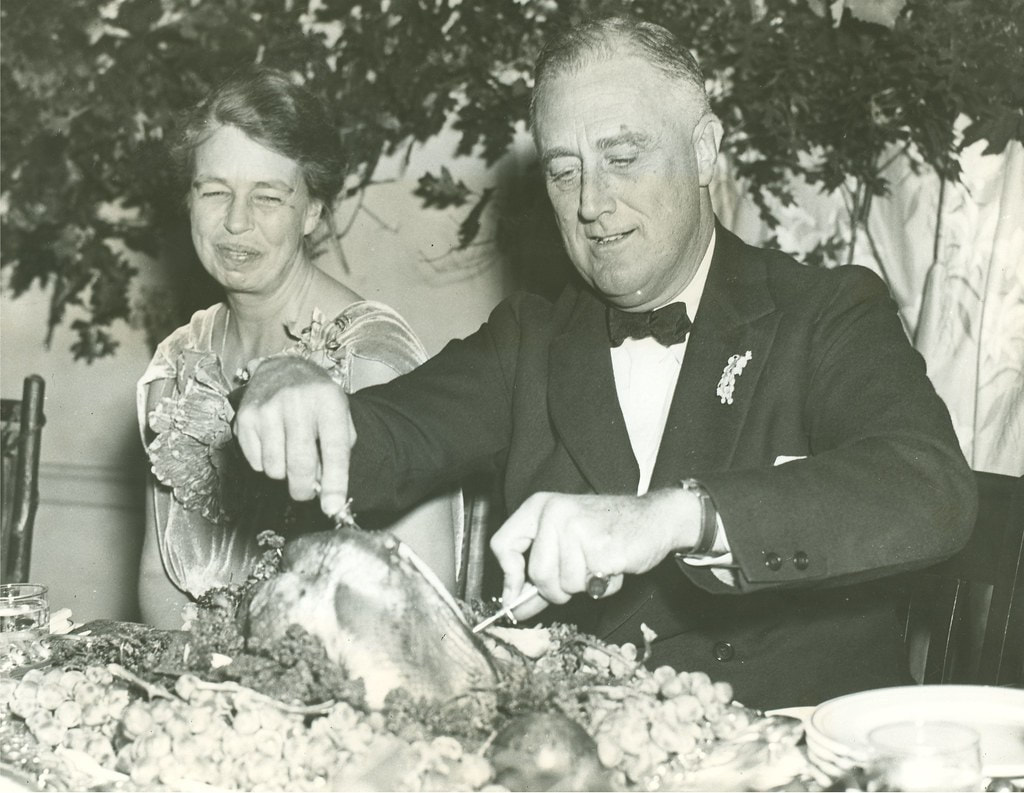




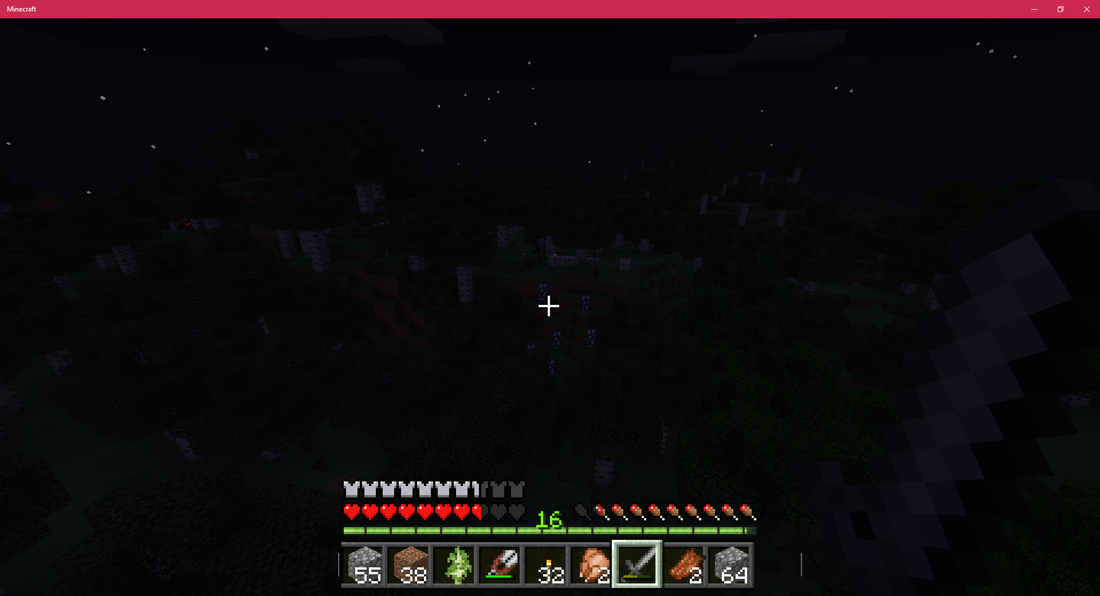
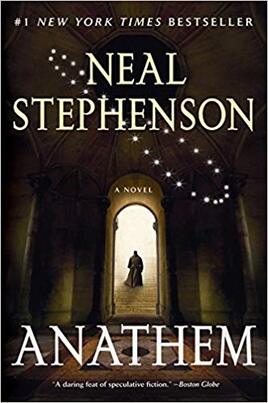


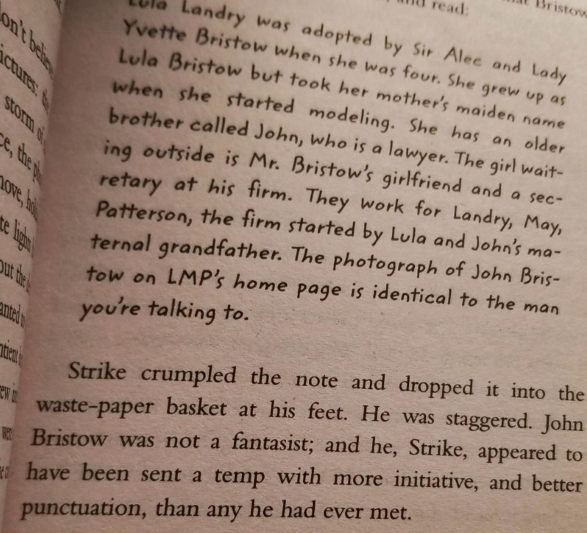
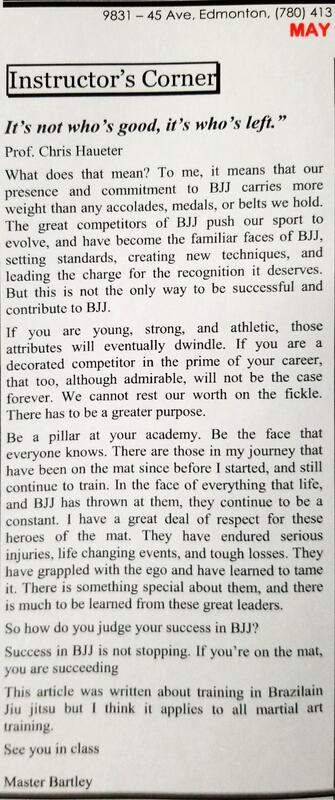
 RSS Feed
RSS Feed
